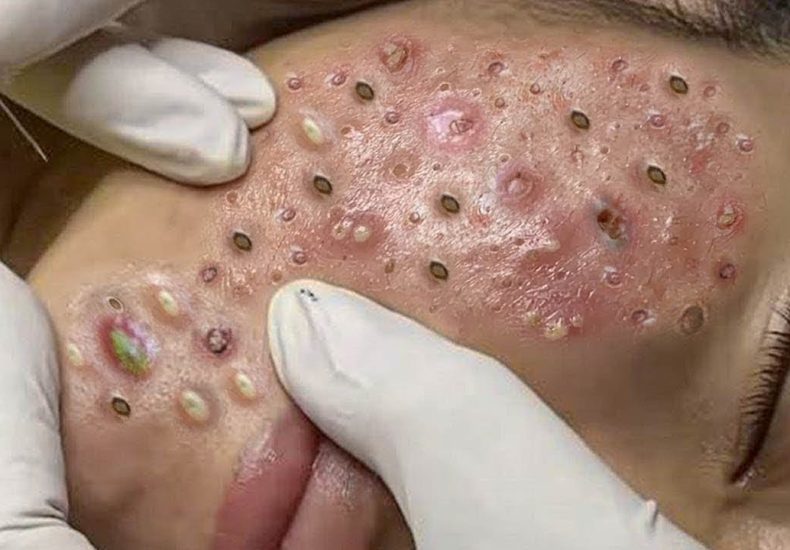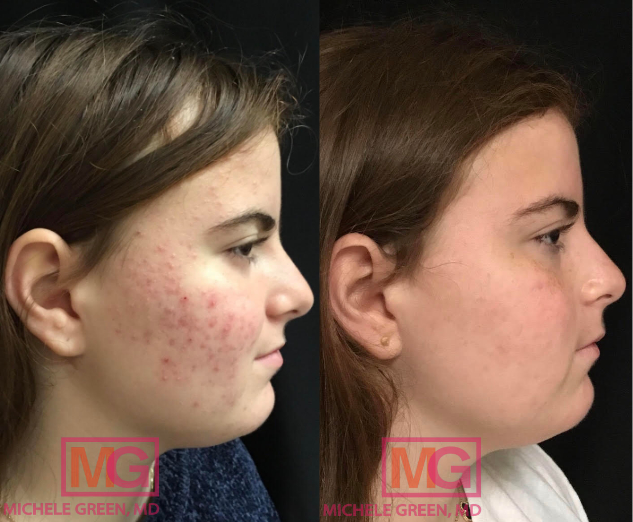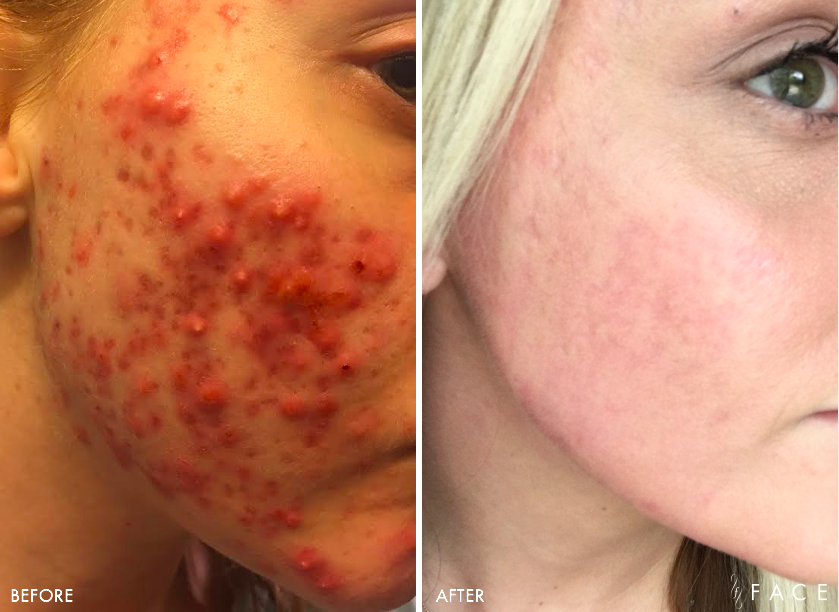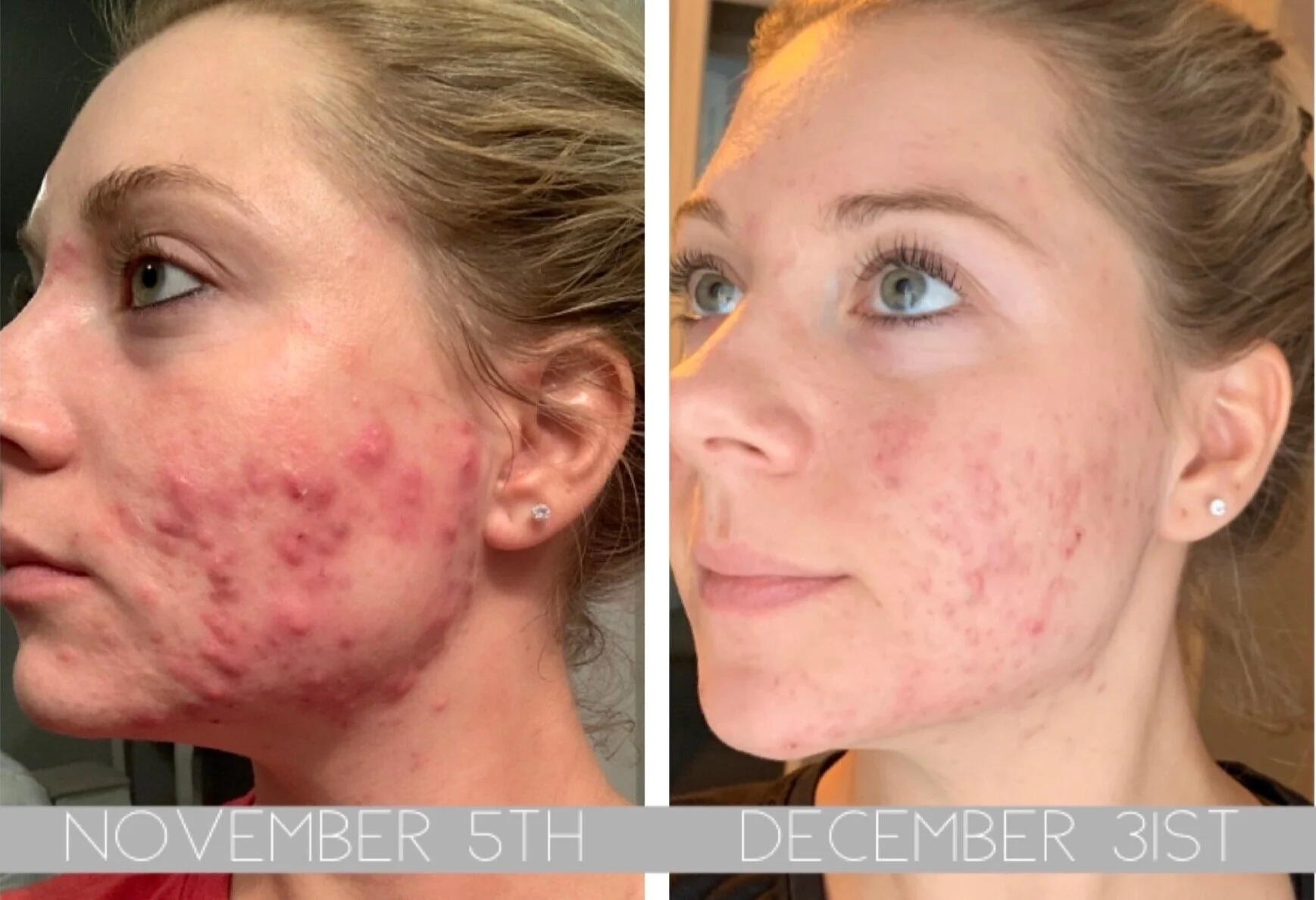
Reacting to SEVERE cystic acne
Reacting to SEVERE cystic acne
Please scroll down to watch the video.👇👇
Dealing with severe cystic acne—especially when it suddenly worsens—can be incredibly tough, both physically and emotionally. Here’s how you can react and respond productively:
1. Don’t Panic—But Take It Seriously
Cystic acne is deep, painful, and inflammatory. It won’t clear up with over-the-counter products alone. Recognize that this is a medical condition, not just a cosmetic issue.
2. Book a Dermatologist Appointment Immediately
A dermatologist can:
-
Prescribe oral antibiotics, hormonal treatments, or isotretinoin (Accutane).
-
Administer cortisone injections to reduce large, painful cysts fast.
-
Help determine the root cause (hormonal, bacterial, etc.).
3. Avoid Touching or Picking
Touching or picking cystic acne:
-
Spreads bacteria.
-
Increases inflammation.
-
Leads to permanent scarring.
4. Simplify Your Skincare
Cut back to gentle essentials:
-
Cleanser: Non-stripping, sulfate-free (like CeraVe or La Roche-Posay).
-
Moisturizer: Lightweight, non-comedogenic.
-
Sunscreen: Daily SPF 30+ (zinc oxide preferred).
5. Avoid Harsh DIY Treatments
Don’t use:
-
Toothpaste
-
Alcohol
-
Baking soda
-
Apple cider vinegar
These worsen irritation and damage skin.
6. Mental Health Check-In
Severe acne can seriously affect self-esteem. If you’re feeling overwhelmed, talking to a therapist or support group can help you process the emotional burden.
7. Track Potential Triggers
Jot down:
-
Hormonal cycle
-
Foods (especially dairy, sugar, soy)
-
Stress levels This helps identify patterns that might be worsening flare-ups.



Managing severe cystic acne requires a comprehensive approach that combines medical treatments, skincare routines, and lifestyle modifications. Below is a detailed guide based on clinical evidence and expert recommendations:
🩺 Medical Treatments
1. Oral Isotretinoin (Accutane)
For severe or treatment-resistant cystic acne, oral isotretinoin is often the most effective option. It targets all major causes of acne—excess oil, clogged pores, inflammation, and bacteria. However, it comes with potential side effects and requires close medical supervision.
2. Oral Antibiotics
Tetracyclines (like doxycycline or minocycline) are commonly prescribed to reduce inflammation and bacterial overgrowth. They are typically used in combination with topical treatments and are limited to a 12-week course to prevent antibiotic resistance.
3. Hormonal Therapies
For women, hormonal fluctuations can exacerbate cystic acne. Combined oral contraceptives and spironolactone (an anti-androgen) can help regulate hormones and reduce breakouts.
4. Corticosteroid Injections
For immediate relief of painful cysts, dermatologists may administer corticosteroid injections directly into the lesion to reduce inflammation and speed up healing.
🧴 Skincare Routine
A gentle and consistent skincare routine can support medical treatments:
-
Cleanser: Use a mild, non-comedogenic cleanser to remove excess oil and impurities without stripping the skin.
-
Topical Treatments: Apply products containing benzoyl peroxide or retinoids to reduce bacteria and promote cell turnover.
-
Moisturizer: Even oily skin needs hydration. Choose an oil-free, non-comedogenic moisturizer to maintain the skin barrier.
-
Sunscreen: Daily use of a broad-spectrum SPF 30+ sunscreen is crucial, especially when using retinoids or other photosensitizing treatments.
🍽️ Lifestyle and Dietary Considerations
-
Diet: Some studies suggest that high glycemic index foods and dairy products may exacerbate acne. Consider reducing intake of these foods and increasing consumption of fruits, vegetables, and whole grains.
-
Stress Management: Chronic stress can worsen acne. Incorporate stress-reducing activities like exercise, meditation, or hobbies into your routine.
-
Avoid Picking: Touching or picking at acne lesions can lead to further inflammation and scarring.
🧠 Mental Health Support
Severe acne can significantly impact self-esteem and mental well-being. If you’re experiencing feelings of depression or anxiety related to your skin condition, consider seeking support from a mental health professional.
Top Selections:
-
La Roche-Posay Effaclar Medicated Gel Cleanser: Contains salicylic acid to help unclog pores and reduce acne.
-
Differin Gel Acne Treatment 0.1% Adapalene: A retinoid that promotes cell turnover and prevents clogged pores.
-
Paula’s Choice Skin Perfecting 2% BHA Liquid Exfoliant: An exfoliating toner that penetrates pores to clear breakouts and blackheads.
These products are widely available and have received positive reviews for their efficacy in managing acne-prone skin.
-

Leave a Reply